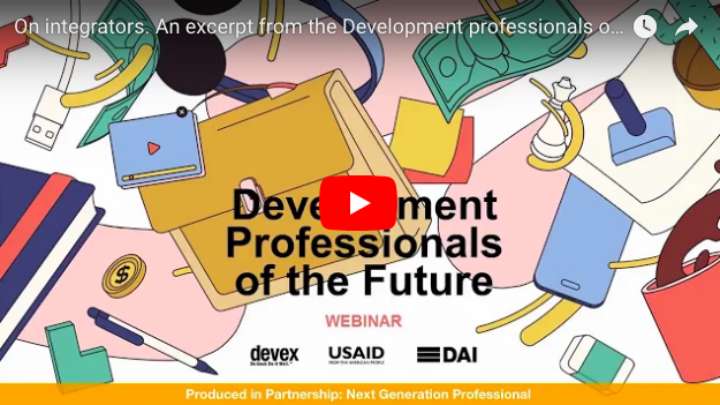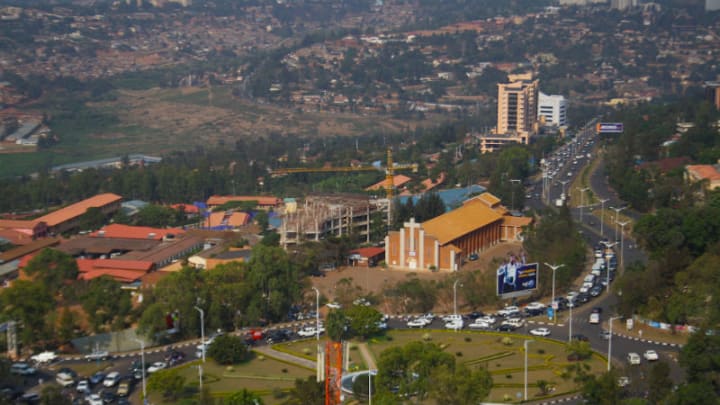{UAH} Fwd: Lessons from humanitarian storytellers in an era of protracted crises
Sent from my iPhone
Begin forwarded message:
From: Devex Doing Good <info@devex.com>
Date: 4 September 2018 22:43:48 BST
To: georgeokello_8@hotmail.com
Subject: Lessons from humanitarian storytellers in an era of protracted crises
Reply-To: <info@devex.com>
Doing Good - Development community buzz, innovation & lifestyle
Sept. 4, 2018 WHAT TO KNOW NOW 
Devex spoke to communicators at Save the Children, the International Federation of the Red Cross and Red Crescent Societies, the International Rescue Committee, and World Vision International to learn about challenges and opportunities for communicators in the humanitarian space. Here are five key lessons.
1. Return to the basics: Humanitarian work is challenging, complicated, and complex — and capturing those complexities for an external audience is a challenge in itself. More and more organizations are pivoting to a focus on individual stories, relatable entry points and, in some cases, more unfiltered and raw content from the frontlines.
2. Acknowledge the frustrations of your audience: Experts noted the "insatiable appetite" in the media for "killer quotes and killer facts" when talking about humanitarian issues. Teams have to react quickly to breaking news with powerful images and commentary in order to push complex emergencies into headlines. But for some of the worst emergencies, such as the crisis in Yemen, sustained traction can be hard.
3. Lean into the complexity of, and hope behind, humanitarian issues: Organizations should focus on equipping their audience with facts, inspiring stories, and a historical perspective. Analytics show that people respond to hope, and the concept of compassion fatigue — when the number of simultaneous crises leaves an audience feeling hopeless — presents an opportunity to reframe the way humanitarians talk about crises.
4. Keep human dignity central and give those affected by crises the microphone: First-person stories from children displaced by war or an aid worker on the frontlines provide an avenue to connect to audiences in ways canned messaging or even catchy slogans might not be able to. These types of stories reinforce that humans are at the center of the work.
5. Protect your teams: In humanitarian emergencies, there's pressure to show impact to donors, diversify action in the crowded humanitarian space, and attract media attention. But in communications, quick reactions done wrong serve a cautionary tale. Humanitarian communicators have to resist the urge to be everything and say everything to everyone. Instead, they should rationalize where to put their weight and bear influence.
+ Read more
QUOTABLE
— Matthew Cochrane, media and advocacy manager and spokesperson at the IFRC
SPOTLIGHT ON 
Without a national coordinating body or agency to oversee mental health care, or run anti-stigma and psychoeducation initiatives, more nonprofits are springing up to close the gap.
SPONSORED ANNOUNCEMENT
Join thousands of other humanitarians in this free massive open online course on Humanitarian Futures & Foresight, starting Oct. 8.
Developed by the Humanitarian Leadership Academy and the Institute For The Future, this one-week course is a great opportunity for humanitarian leaders to future-proof their organizations and get them ready for new events or crises. It will help you understand key trends and patterns to stay relevant and find strategies to deal with long-term humanitarian challenges such as natural hazards, food insecurity, and protracted crises.
Sign up for free today
FEATURED ORGANIZATION
Links:
- Health care infrastructure solutions
- "In-a-Box" solutions
- About the prefabricated health posts
- Learn more about the storage units
THE WEEK AHEAD 

Important: This email contains links that automatically log you into your Devex account.
Copyright 2018 Unauthorized commercial reapplication, reproduction or retransmission, in whole or in part, is prohibited.
Doing Good - Development community buzz, innovation & lifestyle.
Not interested? Unsubscribe from Devex email notifications here.
Connect with us Devex is the media platform for the global development community.
Corporate Headquarters: 1341 Connecticut Ave. NW, Washington, DC 20036 USA Main +1.202.249.9222 | Fax +1.202.318.2456 www.devex.com




















0 comments:
Post a Comment